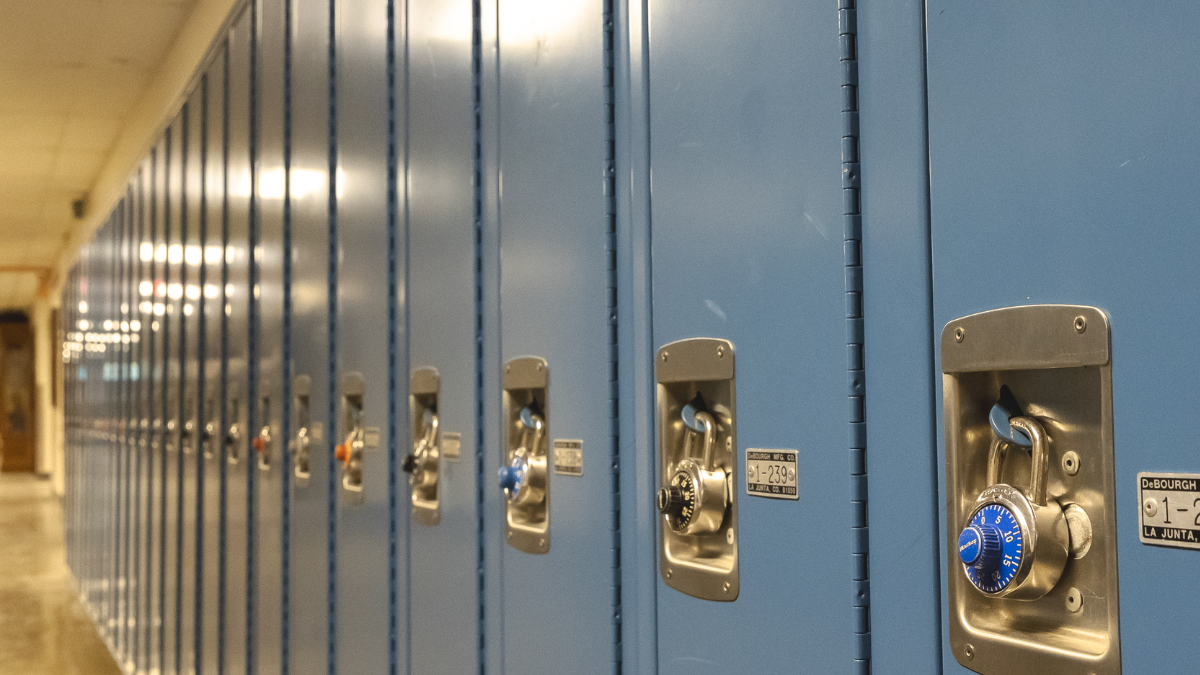Immigration is having a profound impact on South Florida's public schools, and Jackson High School in Miami might be ground zero to examine its effects. The student body is roughly three-fourths immigrant kids, mostly from Central America.
"Language is the biggest issue," said Sylvia Quinones, who heads the school's efforts to teach English to the new arrivals.
But language is far from the only issue. Many of Jackson's students left parents behind and have no family structure. Some are homeless, so they rely on school for meals, structure, and guidance.
"These kids are basically on their own and the ones that make it are the ones that really want it, are motivated and want something better for themselves," said Principal Carlos Rios.
It's not uncommon at Jackson to find classrooms where every student is an immigrant, and many of them have incredible stories of how they got to the USA.
Loren Najera says she came here to have a future, and almost died along the way from Honduras. She says she got lost in the Mexican desert for three days and wouldn't wish that on anybody. Her goal is to graduate and join the U.S. Army, if she can avoid deportation.
"I want to be a soccer player," says Kevin Caballero, in halting English.
Local
He is 16, and also had a harrowing journey from Honduras. He says he was afraid he'd drown crossing a river. Now Caballero wants to go to college after high school, if he can stay here.
"We've seen kids come here who have no English knowledge and are close now to graduating with honors," said Rios.
Miami-Dade Schools Superintendent Alberto Carvalho has strong opinions about the issue of immigrant students in local schools.
"Once placed in an environment where they are cared for, where they're hugged, they're loved, they're taught, they thrive," said Carvalho. "We welcome our kids, we teach them, and we expect them to have a viable future, and if you don't support immigration reform you're saying that after 12 years of schooling these kids are on the road to nowhere."
Carvalho says bringing immigrant kids up to speed is expensive, almost $2,000 per student per year.
Then there are kids like Ainoa Cazalis, born in Venezuela but raised in the USA since she was a baby.
"I mean, I speak better English than I do Spanish," Cazalis says.
She's a thoroughly American senior at Alonzo and Tracy Mourning High School, looking forward to college in the only country she knows.
"This is what you know, this is where you grew up, it's really tough to think that they're gonna deport you to, like, a third world country," Cazalis said.
Ainoa just found out she will be able to stay here, and if Carvalho had his way, so would the other undocumented kids in the school systems of South Florida.
"As an educator, as a father, as a citizen, and as an immigrant, I would offer this advice to both the president and Congress: set aside your partisan perspectives and do what's right for our country, do what's right for children," Carvalho said.
Obviously, many in Congress disagree with Carvalho's perspective, saying allowing kids who are in the United States illegally to stay here would only encourage more children to risk their lives to get to the United States.
The Senate passed comprehensive immigration reform two years ago, but it has never even been brought up for a vote in the House.
President Obama recently announced his own relaxation of deportation rules, but a federal judge stalled that policy change, and the administration is now fighting that ruling in court.
The wheels of immigration reform turn slowly, perhaps too slowly to help the kids in high school now who wonder if they have a future in this country.



